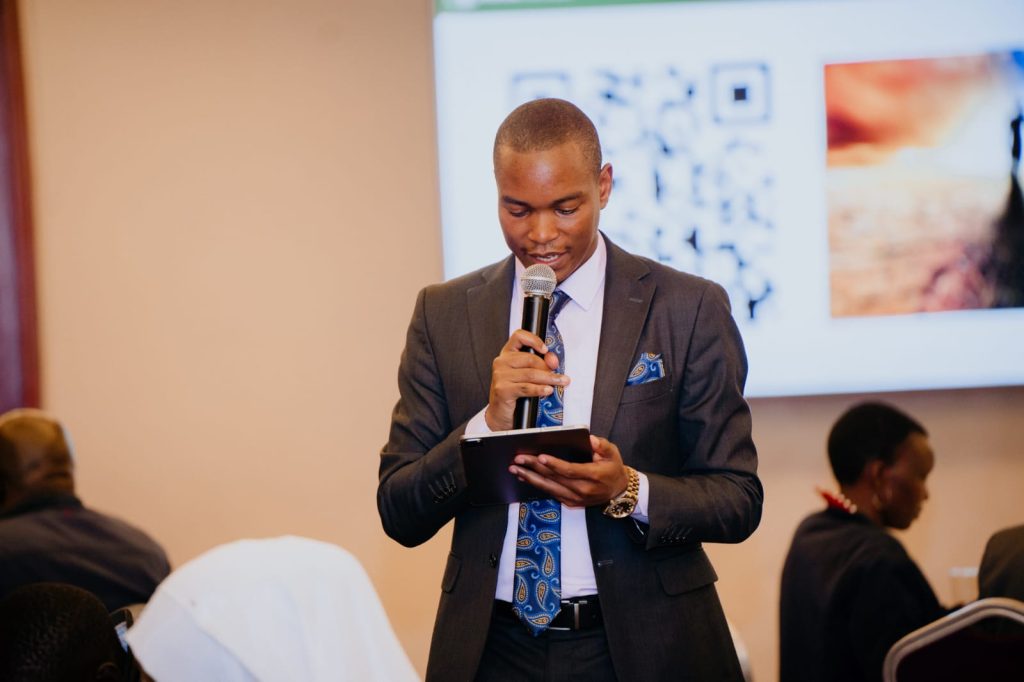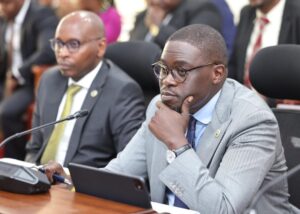AGRA Engages Kenyan Youth in Agriculture on Climate and Resilience

Today, in Nairobi, AGRA convened a session with 100 youth in agri-food systems to discuss the issue of climate change and possible solutions. The youth shared new approaches that they have employed to reduce climate vulnerability in country.
This is the fourth convening, since AGRA kicked off National Level conversation on climate.
The convening sought to promote discussions between young people in the country and key stakeholders in the agricultural sector to enhance youth empowerment for a better understanding of needs and priorities and to identify opportunity areas in the sector in the wake of climate change.
The convening also sought to address climate change related issues, and ensure food systems transformation in Africa.
Speaking at the session, AGRA Head of Climate Adaptation, Sustainable Agriculture and Resilience, Kindie Fantaye said, “Together, we can build a sustainable future where our youth are not only survivors of climate change but leaders in creating a resilient and prosperous Kenya.
Elizabeth Ngeny, Advisor Gender and Affirmative Action-Presidents Economic Transformation Office in her keynote address noted that “Civic organizations, NGO’s and academic institutions play a huge role in advancement of climate change intervention initiatives. Organizations such as the Kenya Met Department and University of Nairobi’s Institute for Climate Change Research have been instrumental in conducting climate change research. We would like to thank the civic organizations, NGO’s and our development partners like the Mastercard Foundation and AGRA which is very dear to us for their contributions to climate change interventions and adaptation initiatives.”
Dr Jeremiah Rogito, Specialist Food Systems and Land Use at AGRA also remarked that, “All these voices to regional voices, all these will be brought together for Africa Food System Forum in Kigali Rwanda 2nd to 6th September Kigali Rwanda. We look forward to amplify the voice of the youth what they need to see happening on climate action in the continent We use these voices to global engagement like COP29 to change policies that favor the youth In Agriculture.”
A 2022 climate report on the state of climate in Africa indicated that Africa is still warming faster than the rest of the world, disrupting the already existing fragile agricultural systems in the continent, this calls for a joint action. Africa’s food systems will continue to face challenges due to increased droughts, intense heat waves, storms, rising sea levels, floods, and wildfires.
The youth are the most vulnerable to climate shocks, often bearing the brunt of environmental changes that disrupt their livelihoods, education, and future opportunities. Thus, it is important to provide support to the youth and their institutions in developing a comprehensive understanding of the current systems and to jointly formulate the innovations necessary for adapting to climate change.
With young generations in Africa grappling with the impacts of climate change despite making minimal contributions to global emissions, the need to address climate change related issues in Africa, particularly in favor of youth, is stronger than ever. The Youth in Climate convening is part of AGRA’s efforts to involve the youth into this series of African country youth dialogues and networks for collaboration, knowledge exchange, and coordinated among the youth at country level.
AGRA’s partnership with the Mastercard Foundation, Youth Entrepreneurship for the Future of Agriculture (YEFFA), a five-year program aims to increase the participation of African youth and young women’s in the African food systems transformation initiative.
AGRA is capturing the youth views, challenges, and new approaches to climate adaptation in the food systems and will compile these views in one document, that will be presented at Africa Food Systems Forum in September and COP29 in November, as a common voice for the youth in Africa.
At AGRA we are convening these conversations at a National Level, so that we can deeply understand issues per country and develop policies and approaches that suits that country. So far, we have engaged youth in Ghana, Rwanda, Uganda, and Kenya.





